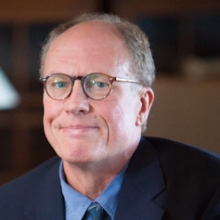ETL Ignite: Assessing Learning Outcomes Piece by Piece
This post is one of a series that stems from our 4th Annual Educating Tomorrow's Lawyers Conference. The author(s) presented a six-minute Ignite-style presentation at the conference that discussed the innovations and outcomes of their school’s classes, programs, or curricula—or within the realm of legal education more broadly. The videos will be available here and in our Resources section as they become available.
At Denver Law, we are following the wisdom that counsels conducting assessment in small and discrete pieces. We will, each year, focus on parts of our JD program and assess learning in each using direct (student work product) and/or indirect (student self-reports) data.
An example of the latter is our “Externship Program Professional Identity Formation Project.” At the start and upon completion of doing an Externship, Denver Law students rate themselves on ten items associated with professional identity and identity formation. From these responses, we compute a “Prof ID Formation Index” for each student, and we compare these measures before and after the Externship.
We find that ratings are more positive after than before the experience. Probing more deeply, we find evidence that prior experience makes a difference. We look at pre- and post-scores for three groups: students for whom this is their first Externship; their second Externship; or their third. We find something interesting. Post-ratings are uniformly positive; pre-ratings, on the other hand, appear more positive for students doing their second or third Externship. It seems that students who have done a prior Externship retain a more positive self-image on this measure—the Prof ID Formation Index—when they begin the next Externship. We will study this hypothesized effect in more detail, on a larger sample. If the relationship holds up, we will be able to counsel students that our research shows that doing an Externship assists in developing professional identity, and that doing more than one Externship seems to further increase development.
Our plan at Denver Law is to complete a half dozen of these small, discrete assessment projects each year. Some projects we will repeat each year or every other year. Other projects we will do once and move on. The process we follow in each study includes discussion of the findings and how they match up with expectations of student learning. Over time, our research accumulates and forms a body of assessment work. And we hope that participation by faculty teaching in different areas and programs will contribute to building a culture of assessment at our law school.
I want to give a shout-out to all who attended the 4th Annual ETL Conference in Denver from October 1 to 3. This was the second year I attended. Both years were great. The participants who spend three days discussing developments in legal education are positive, supportive, innovative, and open-minded. We are turning the well-documented and much-discussed “crisis in legal education” into an opportunity to advocate for and take actions resulting in changes in how law schools prepare our students for the profession.
Thank you, IAALS, for creating and sponsoring this forum and for nurturing the valuable conversation.
My email is rwagner@law.du.edu.


